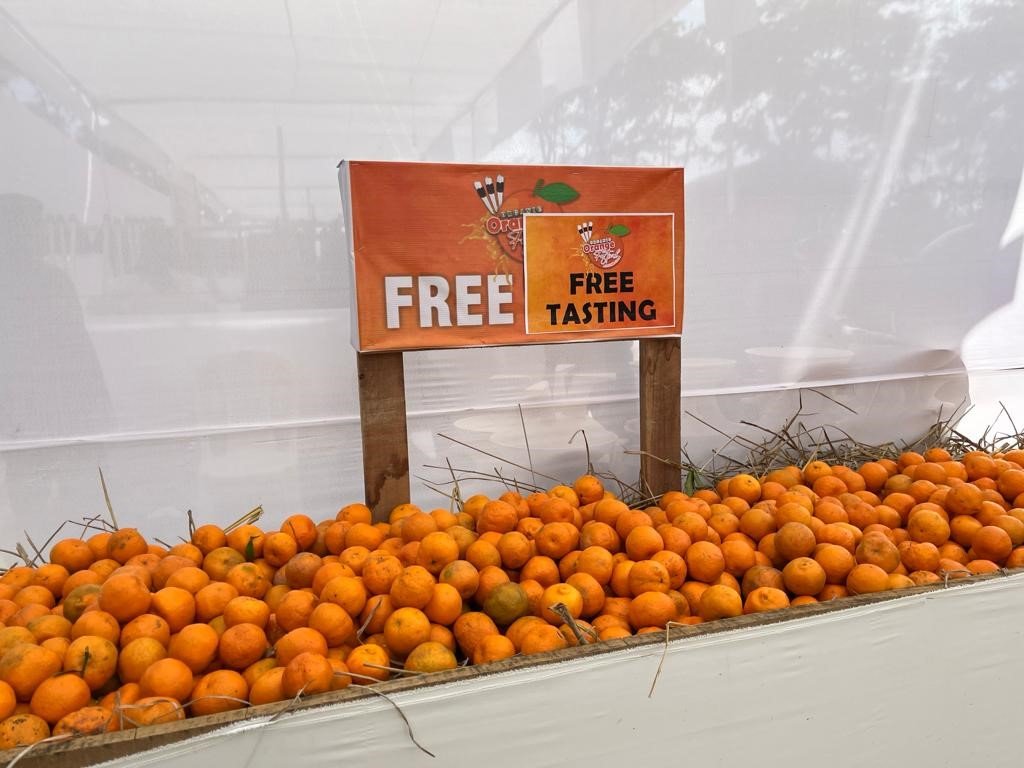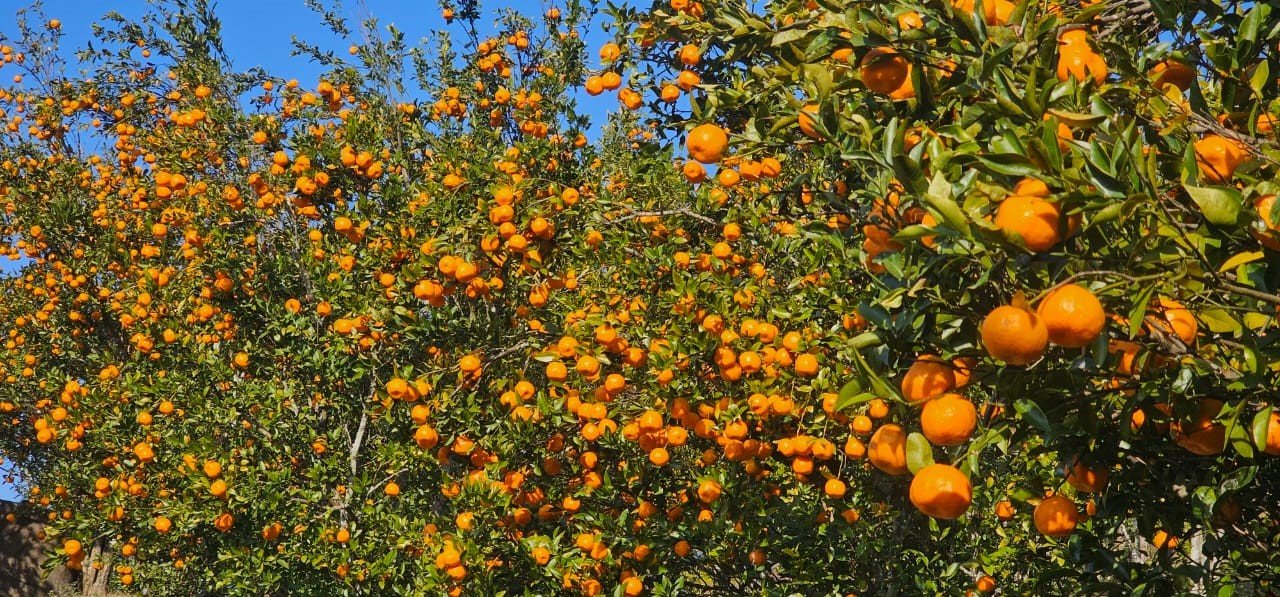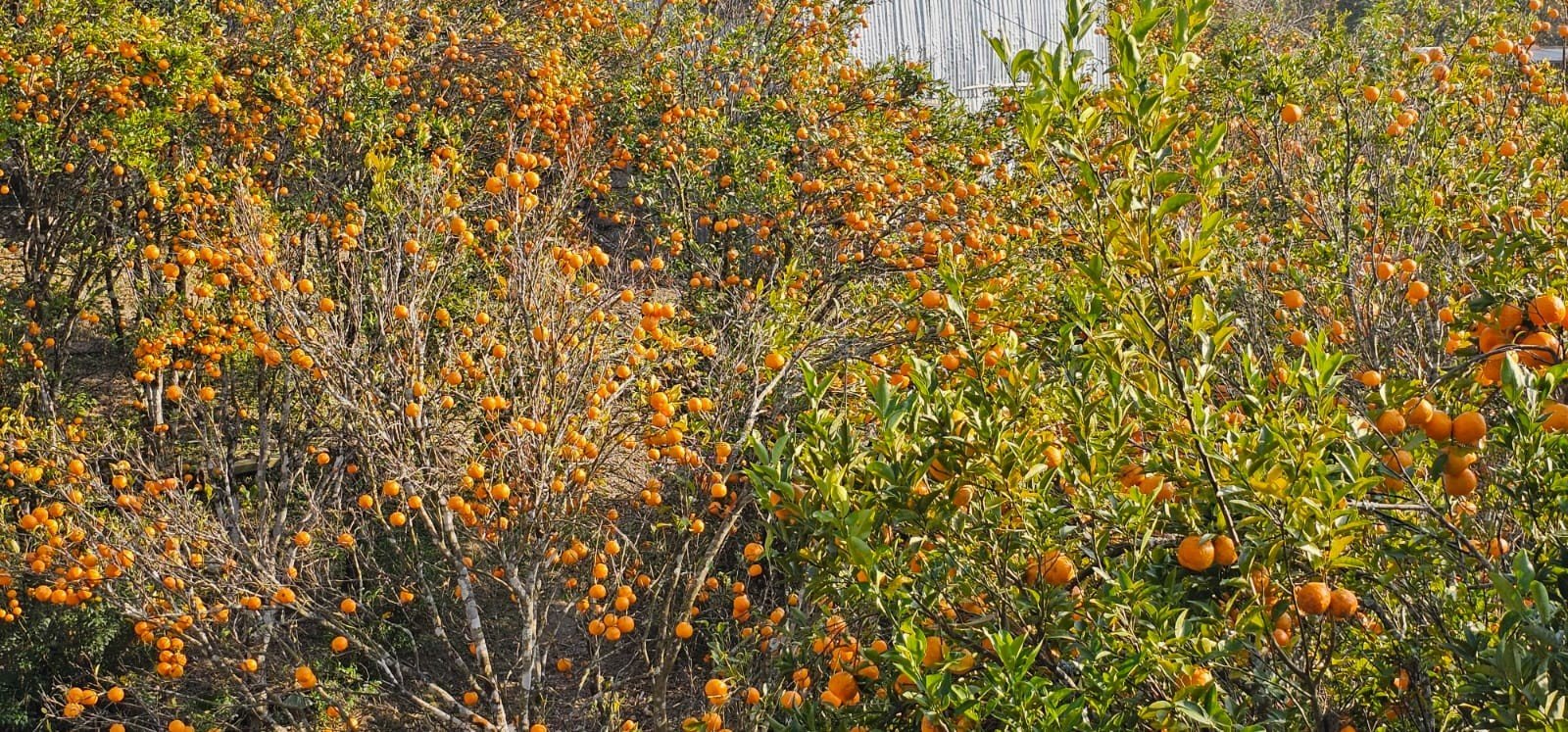Rüsoma Village, situated in the Northern region of Kohima district, lies 12 km away from the State’s capital. The landscape of Rüsoma Village is scenic, surrounded with green valleys, streams, rivers, and high mountains.
Agriculture, especially, terrace cultivation, is the primary occupation of the village. Divided into eight khels, Rüsoma Village has a total population of 2810 with a slightly higher female population of 1410 and comprising of 1400 males, according to the 2022 Census, .
On January 5, 1986, the Rüsoma people adopted its village as an Organic Gardening Village. Subsequently, the Government of Nagaland accepted the resolution and the name in 1989.
Now, popularly known as the Gardening Village or Tezie Kechü Rüna, Orange (Shürhuo in Tenyidie) is one of the most popular fruits of the village. In recent years, Rüsoma village has become synonymously known as an orange land. Orange plantation in Rüsoma Village is not just confined to orchards and gardens, but the fruit trees are planted and grown in the surroundings of terrace fields as well. The village has a total of 42,800 orange trees.
According to the orange growers data collection of 2024, the orange produce in Rüsoma has generated an income of Rs.5,347,500 till date.
The Orange Festival or Shühuo Nyi was first celebrated in the year 2020, conceptualized by entrepreneur and biker Thejakielie Zuyie. Since then, the orange festival has became an annual celebration. According to the organizers, the event celebrates the rich agricultural heritage of the region and promotes the local orange industry. It brings together farmers, entrepreneurs, and community members to showcase the diverse range of orange products, including fresh produce, juices, jams, and other value-added products.
Visier Vimera, Organising committee Chairman stated that the Orange Festival has being conceptualized to encourage Rural Agri & Allied entrepreneurship and to popularize the organic products of the village, thereby giving the people avenues of income earning and employment.
The festival also envisions to enable every citizen of Rüsoma village to realize the importance of self-reliance through hard work, dedication, cleanliness and productive natural resource use without exploitation.

“The orange farmers and cultivators invested their labour and time in tending their orange orchards and gardens throughout the year to protect it from pests and diseases to have a good harvest. As per the tradition of maintaining kitchen gardens, many households in the village have grown oranges in their kitchen gardens, compounds, and backyards,” Vimera.
Download Nagaland Tribune app on Google Play

According to Vimera, the best orange trees can bear 70 to 80 kgs of fruits. Besides the plantation and harvests of orange fruit, the village is also known for producing exceptional handicrafts, tools, and skilled in weaving baskets.

“It has some wonderful testimonies of transforming lives and families through these relentless efforts,” says Vimera.
The village economy too has seen a leap on account of the Orange Festival. Variety of shapes and sizes are found in the orange gardens of Rüsoma. “They are pure, nourishing, rich, and has the sweetest tastes,” remarks Vimera.
As a “Gardening Village,” the people of Rüsoma Village besides the large plantation of Oranges also introduced Coffee plantations, Litchi plantations, Yongchak or stink bean Parkia roxburghi) and other seasonal Fruits, Vegetables, Spices, Cereals & Pulse crops consecutively for three years.

True to its nomenclature of an organic gardening village, the village has envisioned and practised organic growth of its vegetables, fruits, and seeds for generations. It continues to strongly ban the use of fertilizer in the village premise till today.

